

Study MBBS in Russia for Indian Student
MBBS in Russia for Indian students is a great opportunity. The dream is achievable and
affordable.
For many aspiring Doctors, the most exciting opportunity is studying MBBS in Russia, at a fraction
of cost compared to private colleges in India. With annual MBBS fees in Russia starting as
low as
₹2.6 lakhs, Russia today offers degrees that are globally recognized, along with excellent
infrastructure and hands-on clinical training. Benefit from this transformative opportunity with
Abroad Education Consultancy, based in Vadodara. Explore the top medical colleges in Russia
for
Indian students with us.
Abroad Education Consultancy in Gujarat guides students toward fulfilling their study abroad dreams
by helping them choose the right MBBS university in Russia and post-study programs. We provide
end-to-end support throughout your education to make your academic journey stress-free. Find out
the cost to study MBBS in Russia and get to know about MBBS admission in Russia
documents, from our
expert team.
Degree Awarded
MD equivalent to MBBS in India
MBBS in Russia Duration
6 years, including 1 year of internship
MBBS in Russia Intakes
September
Eligibility for MBBS Russia
50% marks in class 12 with Physics, Chemistry, and Biology , NEET Qualified
Admission Requirements
Applicants are required to have completed 10+2 or equivalent with Physics, Chemistry, Biology and English as core subjects; NEET Exam Qualified
Medium of Teaching
Both Russian and English in most colleges English in only a few colleges
Approved By
NMC, WHO, FAIMER, Ministry of Education Russia.
MBBS Fees in Russia
Rs. 15 to 50 lakhs approximately for Indian students
Living Cost in Russia
Apart from university fees, you need to spend around 100 to 150 USD per month for food and other personal expenses. Living expenses are a little higher in major cities of Russia ( Moscow and St. Petersburg). Russia is not such an expensive country as you think.
MBBS in Russia Fees
Education offered by the top colleges in Russia is affordable. MBBS fees in Russia are just ₹2.6 - ₹3.7, far less than private colleges in India. They have globally recognized medical degrees. The class sizes are small, that facilitates individualized attention. The curriculum focuses on practical knowledge and clinical experience for the real challenges of modern medicine. Experience a new way of educational life with the support of Abroad Education Consultancy. We will make the entire process free of hassles for you.
Download BrochureComprehensive Education
Study MBBS in Russia – From the Top Medical Universities
Russia’s education system nurtures emotional and intellectual growth of learners. The higher education in Russia, especially in medicine, is highly regarded all around the world. Its medical programs are recognized by UNESCO, WHO and top-notch medical councils globally. Many universities in Russia offer MBBS courses in English. However, learning Russian is still beneficial for better interaction. Russia mainly attracts international students due to these factors: affordable fees, quality education, modern infrastructure and MBBS degrees which are globally accepted. Admission requirements generally include a good background in Chemistry, Biology and Physics. There are some universities that may conduct entrance exams. The course for MBBS study in the English language has its emphasis on practical learning.
MBBS in Russia: Course Structure by Russian Medical Universities
If your definition of the best university includes good education, and quality life, Georgia is your dream place. Another attraction is affordability. Georgian medical universities serve as affordable alternative to the medical colleges in India. Abroad Education Consultancy will provide you the complete guidance about the admission process to make your transition stress-free. The medical universities in Georgia are recognized by the National Medical Commission, India, the World Health Organization, the Educational Commission for Foreign Medical Graduates, USA, the Foundation for Advancement of International Medical Education and Research and the World Federation for Medical Education. The National Center for Educational Quality Enhancement, NCEQE, Georgia ensures high academic standards of all its medical programs. The students are provided with comprehensive training in advanced, innovative and practical medical techniques and provided theoretical knowledge and practical exposure.

Study MBBS in Russia: Browse Our Programs
It's important to remember that the exact duration of the MBBS in russia universities programs may vary slightly depending on the specific university and the structure of their individual program. Some institutions may have slightly longer or shorter pre-clinical or clinical stages.

MBBS / MD
6 Years Duration

DENTISTRY
5 Years Duration

PHARMACY
5 Years Duration

NURSING
4 Years Duration

Structure of MBBS Course in Russia
- Latin
- Russian
- History
- Biology
- Physics,Mathematics
- Human Anatomy
- Basic of Paitent Care
- Histology, Embryology
- Public Saftey
- Phsyiology
- Biological Chemistry
- Microbiology
- Philosophy
- Economics & Law
- Psychology And Pedagogy
- Topographic Anatomy & Operative Surgery
- Nursing
- Pathophysiology
- Pathological Anatomy
- General Surgery
- Propedeutics Of Internal Diseases
- Public Health
- Hygiene
- Fundamental Surgery
- Internal Medicine
- IT And E-Health
- Radiodiagnostics
- Pharmacology
- Anesthesiology. Resuscitation
- Otorhinolaryngology
- Neurology, Neurosurgery
- Medical Genetics
- Obstetrics And Gynecology
- Urology
- Dermatovenerology
- Surgery
- Medical Rehabilitation
- Hospital Medicine
- Infectious Disease
- Pediatricians
- Endocrinology
- Psychiatry, Medical Psychology
- Traumatology. Orthopaedics
- Phthisiology
- Oral Surgery
- Epidemiology
- Outpatient Service
- Medical Emergencies
- Oncology, Radiotherapy
- Clinical Pharmacology
- Forensic Medicine
Eligibility criteria for Indian Students to Study MBBS in Russia
For educational background, one should have completed 12th grade with Chemistry, Physics and Biology, scoring at least 50%. Moreover, Indian students must be eligible for NEET so as to study at the university in Russia. One should be at least 17 years old by December 31 of admission year.

Education Background
- You should have completed 12th grade with Chemistry, Physics and Biology, scoring at least 50%.

Age Limit
- You should be at least 17 years old by December 31 of admission year.

NEET Score
- Indian students must be eligible for NEET so as to study at the best MBBS university in Russia.

MBBS Intake in Russia
The main intake for MBBS in Russia typically occurs in September. This is the most common intake for international students, including those from India. These dates can vary slightly depending on the specific university.
Here's 2025-26 Admission Intake and Deadlines for applying to MBBS programs in russia:
- Application Start Date: May
- Last Date of Application: August
- Secondary intake : January or February (may have a limited number of seats available)

Tuition Fees
The average tuition fee for the six-years MBBS degree in Russia is about 25 Lacs. The low education fee makes Russia one of the top MBBS abroad destinations for many Indian students.

Total Estimated Cost
The total cost of MBBS in Russia is about 20-25 Lacs depending on the college and city. This cost includes tuition fees, accommodation, and medical insurance.


Living Expenses
The cost of living in Russia is about 58% lower than that in the USA. An individual can live comfortably spending about 510 $ (INR 43,000) in a month (excluding rent).
Cost of Studying MBBS in Russia
MBBS in russia presents a significantly more cost-effective option for Indian students compared to many Western countries due to its combination of relatively low tuition fees and moderate living expenses.
Studying MBBS in russia has become increasingly popular among Indian students, not only for its affordability but also for the quality of education it offers.
Simplified Process
MBBS Admission in Russian Medical Universities
| Steps |
Process Description
|
|---|---|
| Passport Application | You need to apply for a passport/ renew a passport if not done already. |
| Fill Out Application Accurately | Fill out the application form with precise information. |
| Waiting for Acceptance | Once you have submitted the application form, await an offer letter from the MBBS university you applied to abroad. This letter serves as an official acceptance into the program.. |
| Document Submission | We will send all the necessary documents to the selected universities for student consideration. |
| Receive Admission Letter | You will receive an admission letter from the university shortly after your application is processed. |
| Visa Application | The correctly filled admission letter along with other documents would then be sent to the Ministry of Foreign Affairs of Russia for the visa stamp. |
| Departure to Russia | Once you receive your visa, you may take a flight to Russia. |
| University Entrance Exam | You must physically appear for the entrance exam of the university. Entrance exams at state universities are usually easy and are cleared mostly by everyone. |
| University Orientation | You will then be provided with an orientation session to get acquainted with the university campus. |
Note: The embassy takes more than a month to grant a student visa, so it is advised to keep the paper work ready before time.fees may vary depending on the institution and program. Therefore, students should verify the exact costs to ensure accurate financial planning for their studies.
Admission Requirements
Best University, Price & Hostel Fees to Study MBBS in Russia
| University Name | Tuition Fee Per Year | Hostel Fee Per Year |
|---|---|---|
| CRIMEIAN FEDRAL UNIVERSITY | 3,50,000 RUB | 30,000 RUB |
| KAZAN FEDERAL UNIVERSITY | 4,93,740 RUB | 29,62,200 RUB |
| INGUSH STATE MEDICAL UNIVERSITY | 1,80,000 RUB | 10,80,000 RUB |
| SAMARA STATE MEDICAL UNIVERSITY | 3,30,000 RUB | 19,80,000 RUB |
| PETROZAVODSK STATE MEDICAL UNIVERSITY | 2,68,400 RUB | 16,10,400 RUB |
| BASHKIR STATE MEDICAL UNIVERSITY | 2,99,244 RUB | 15,000 RUB |
| URAL STATE MEDICAL UNIVERSITY | 2,48,880 RUB | 14,93,280 RUB |
| KEMEROVE STATE UNIVERSITY | 2,55,000 RUB | 15,30,000 RUB |
| KABARDINO STATE UNIVERSITY | 2,19,200 RUB | 13,15,200 RUB |
| TVER STATE UNIVERSITY | 2,86,327 RUB | 17,17,962 RUB |
| KRASNOYARSK STATE UNIVERSITY | 3,05,000 RUB | 18,30,000 RUB |
| NORTH-WESTERN STATE MEDICAL UNIVERSITY- SAINT PETERSBURG STATE UNIVERSITY | 4,40,000 RUB | 29,62,000 RUB |
- 10th Standard Marksheet
- 12th Standard Marksheet
- School Leaving Certificate
- Passport-size photographs
- Birth Certificate(optional)
- NEET Scorecard
- Passport
Required Documents:
Note: It's important to note that several countries may require these documents to be translated into their national language for the admission process. Therefore, students must ensure that all the necessary paperwork is complete and accurately translated to facilitate a smooth application procedure abroad.
Quality Education
Why MBBS in Russia?
MBBS in Russia can be a great option for students who are looking for quality medical education that comes at an affordable cost. The tuition fees here are lower than private medical colleges in India. It is a budget-friendly choice. The six-year course focuses on practical training in well-equipped hospitals in Russia giving students the real-world experience. Many MBBS universities in Russia offer English-taught programs. Moreover, adapting to the cold climate and language may take time but Russia offers a welcoming environment making it easier for the international students to adjust to a new life. Its MBBS degrees are recognized globally.

Affordable Tuition Fees
Education is affordable. Russian MBBS fees for Indian students are just ₹2.6 - ₹3.7, far less than private colleges in India.
Practical Skills Emphasis
Emphasizing practical knowledge and clinical experience for the real challenges of modern medicine.
Focus on Individual Growth
Small class sizes. Individualized attention.
Globally recognized
Globally recognized medical degrees. Find out what are the best medical colleges in Russia for Indian students.
No Entrance Exams Required
Studying in russia offers a chance to experience a new culture and environment.
Cultural Enrichment
Experience a new way of life. Living abroad fosters independence, problem-solving, and adventure.
Leading Institutions
Top MBBS Universities in Russia
Russia is home to some of the best MBBS universities. They are known for their high-quality education, global recognition and affordable fees, along with hands-on clinical experience. These universities prepare students for a successful medical career anywhere in the world.
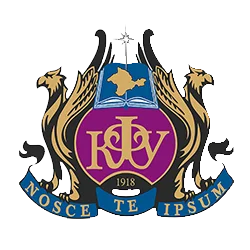
Crimeia Fedral University
Established in 2014, Crimean Federal University is located in Simferopol, Crimea; it stands out for its advanced facilities and experienced faculty. The university offers a welcoming environment for students who want to pursue MBBS in English.

About University
- Year established: 2014
- Recognition: NMC,WHO
- Course duration: 6 years
- Eligibility Criteria: 12th with 50% of marks, NEET
- Medium of teaching: English
- Top Ranking: 948
About University
- Year established: 1804
- Recognition: NMC,WHO
- Course duration: 6 years
- Eligibility Criteria: 12th with 50% of marks, NEET
- Medium of teaching: English
- Top Ranking: 948
Features:
- Community of student: 45000+ total students, 1000+ international students
- Programs: 150+ labs, 400+ learning programs
- Years of Excellence :University functioning for 218 years
- Staff: 4400+ academic staff
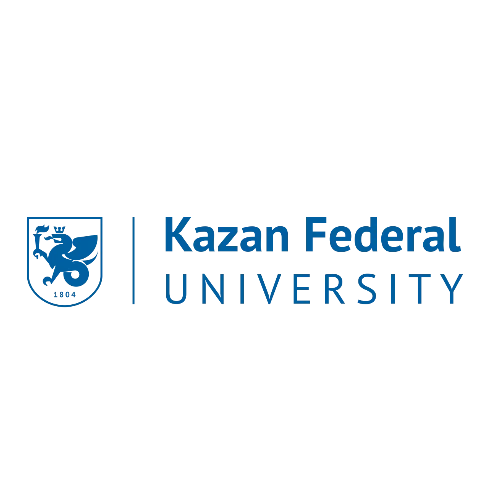
Kazan Federal University
Being one of the leading medical institutions in Russia, Kazan University is known for its research-driven approach and global recognition. It offers high-quality education with a fair focus on practical training.

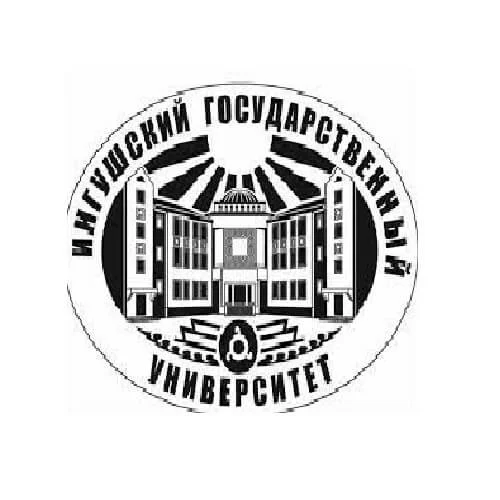
Ingush State Medical University
Established in the year 1994, the university is located in Magas, Russia. It offers MBBS in English and boasts 10 faculties and 42 departments. It provides quality education at an affordable price.

About University
- Year established: 1935
- Recognition: WHO,NMC, Ministry of Sci and Higher Edu of the Russian Federation
- Course duration: 6 years
- Eligibility Criteria: 12th with 50% of marks, NEET
- Medium of teaching: English
- Top Ranking: 19600
Features:
- Faculty: 10 faculties and 42 academic departments, 508+ academic staff
- Community of Students: 8,000+ students
About University
- Year established: 1919
- Recognition: ECFMG, WDOMS, FAIMER, NMC,MCI, AMC,GMC,PLAB
- Course duration: 6 years
- Eligibility Criteria: 12th with 50% of marks, NEET
- Medium of teaching: English
- Top Ranking: 4096
Features:
- Education: Strong medical education setup
- Faculty: 50+ departments with 6 faculties
- community of students: 7000+ students, 900+ international students
- Training: World class student training
- Connected: 1000+ grades, associated with 50 countries
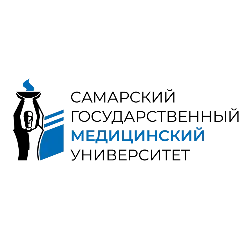
Samara State Medical University
The university was founded in 1919. It is known for its strong focus on clinical training and research. It offers an enriching learning experience; the university prepares students for a successful career in medicine.

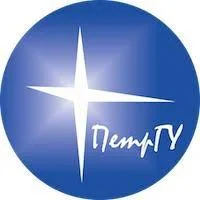
Petrozavodsk State Medical University
Established in the year 1940, the university is renowned for its experienced faculty. It provides hands-on medical training and collaborates with regional hospitals to help learners gain real-world clinical experience.

About University
- Year established: 1940
- Recognition: NMC
- Course duration: 6 years
- Eligibility Criteria: 12th with 50% of marks, NEET
- Medium of teaching: English
- Top Ranking: 3328
Features:
- Laboratory: Russia's largest anatomy lab
- Specialized Education: Training of doctors and pharmacists
- Focused on: Famous for practical training and research
- Opportunities: Various career opportunities in healthcare
- Community: 89 departments and 891 academic staff
About University
- Year established: 1932
- Recognition: NMC, WHO
- Course duration: 6 years
- Eligibility Criteria: 12th with 50% of marks, NEET
- Medium of teaching: English
- Top Ranking: 3328
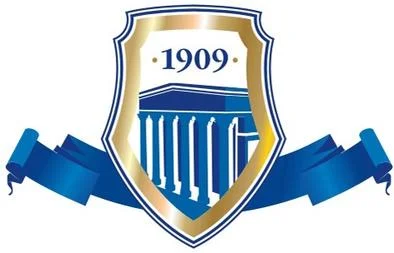
Bashkir State Medical University
Bashkir State is among the top medical universities of Russia. It offers high-quality education at affordable fees in Dentistry, General Medicine and Pharmacy.

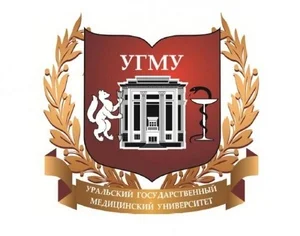
Ural State Medical University
Ural State too is a renowned medical school in Yekaterinburg. It has been recognized by both the WHO and NMC. With more than 7,000 students, the university focuses on research and clinical practice.

About University
- Year established: 1930
- Recognition: NMC, WHO
- Course duration: 6 years
- Eligibility Criteria: 12th with 50% of marks, NEET
- Medium of teaching: English
- Top Ranking: 5160
Features:
- Education: Science and Higher Education of the Russian Federation
- Association: Associated with UNESCO & Ministry
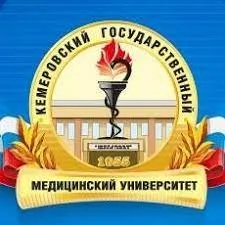
Kemerovo State University
Established in the year 1973, the university is the largest one in the Kuzbass region. It focuses on scientific research and is known for excellent medical programs.

About University
- Year established: 1973
- Recognition: WHO, NMC
- Course duration: 6 years
- Eligibility Criteria: 12th with 50% of marks, NEET
- Medium of teaching: English
- Top Ranking: 4598
Features:
- Renowned Educational: Famous as a major educational and scientific hub
- Campus:Main campus with 17 buildings, in 120,000 square meter
- Accrediation: Accredited by Ministry of Science and Higher Education
- Community of Students & Staff: 20 departments, 822+ academic staff and 10,000+ ,5 other branches
About University
- Year established: 1957
- Recognition: NMC
- Course duration: 6 years
- Eligibility Criteria: 12th with 50% of marks, NEET
- Medium of teaching: English
- Top Ranking: 4791
Features:
- Awards: Award winning university
- Ranked:In 2008, Named in Top 100 Universities
- Contest Honor: In 2010, he was honored in the All-Russian contest
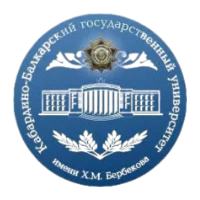
Kabardino Balkarian State University
Kabardino-Balkarian State University named after H. M. Berbekov (KBSU) is the largest university in Kabardino-Balkaria and one of the largest universities in the North Caucasus region. For achievements in the training of qualified specialists and the development of scientific research, Kabardino-Balkarian State University was awarded with the Order of Friendship of Peoples in 1982.

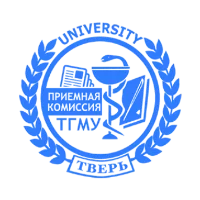
Tver State medical University
Established in 1936, the Tver State Medical University is one of the oldest and most reputed medical universities in Russia. It is a public educational institution and operates under the supervision of the Ministry of Health and Social Development and the Ministry of Education of the Russian Federation.

About University
- Year established: 1936
- Recognition: NMC
- Course duration: 6 years
- Eligibility Criteria: 12th with 50% of marks, NEET
- Medium of teaching: English
- Top Ranking: 8766
Features:
- Programs: Various degree programs available
- Recognition:Recognized by the Russian Ministry
- Global Student Community & Expert Faculty: Students from 50+ countries, 470 academic staff
- Leading: At the top for medical education
About University
- Year established: 1942
- Recognition: NMC, WHO,USMLE,WFME
- Course duration: 6 years
- Eligibility Criteria: 12th with 50% of marks, NEET
- Medium of teaching: English
- Top Ranking: 5229
Features:
- Excellence in Training: Training of healthcare workers
- Programs:Various educational programs available
- Leading in Medical Research : On top of medical research activity
- Hands on Practical: Practical training
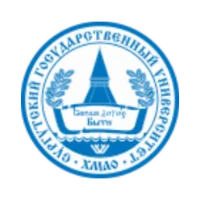
Krasnoyarsk State medical University
The Krasnoyarsk State Medical Institute (KSMI) was formed on November 21, 1942, by the decision of the All-Union Committee for Higher School Affairs under the Council of People's Commissars of the USSR and the People's Commissariat of Health of the USSR by merging the Voronezh Dental Institute evacuated to Krasnoyarsk, parts of the 1st Leningrad Medical Institute and the 2nd Leningrad Medical Institute, as well as the Leningrad Pediatric Institute and the Leningrad Dental Institute.

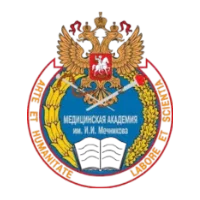
North-Western State medical University - Saint Petersburg State University
The North-Western State Medical University named after I. I. Mechnikov (NWSMU), until 2011 St. Petersburg I. I. Mechnikov State Medical Academy (SPSMA), is a public university located in St. Petersburg, Russian Federation. The NWSMU is one of the oldest and largest Russian Higher Medical Schools.

About University
- Year established: 2011
- Recognition: NMC
- Course duration: 6 years
- Eligibility Criteria: 12th with 50% of marks, NEET
- Medium of teaching: English Russian
- Top Ranking: 9790
Features:
- Student Community:More than 7000 students
- Ranked: 5th place in the top 100 Russian universities
- Comprehensive Academic & Research Excellence: 112 departments and 8 faculties,2 Research Institutes and 6 Research Labs and Departments, One of the largest centers of genetic engineering bio-therapy
- Home to Russia’s Largest Umbilical Cord Blood Bank The largest Russian bank for umbilical cord blood samples
Global Medical Standards
Key Advantages of Studying MBBS in Russia

Affordability:
MBBS in Russia offers a more affordable path to medical education compared to many Western countries.

Globally recognized degrees:
MBBS degrees from Russia are internationally recognized, allowing graduates to pursue medical careers in their home countries.

Focus on Practical Training:
MBBS in Russia emphasizes practical training with extensive internships and placements in hospitals, preparing students for real-world medical practice.

High-Quality Education:
Russian medical universities maintain high educational standards, ensuring graduates receive a strong foundation in medical knowledge and practical skills.

Easy Admission Process:
The admission process for MBBS in Russia is often simpler than other countries, sometimes not requiring English proficiency exams like IELTS or TOEFL.

Culturally Rich Environment:
Studying MBBS in Russia provides a rich cultural experience, allowing students to immerse themselves in Russian history, art, and culture.
What We Do?
Service we offer specifically designed to meet your needs
AEC brings together all the complexities usually associated with Studying abroad by letting students know and understand the concept of Overseas Education. The persistent efforts and dedication of the AEC team have made it possible to achieve our vision.
View All ServicesCareer Counselling
University Selection
Visa Assistance
Pre Departure Guidelines
Why Choose AEC for Admission in MBBS in Russia?
- Abroad Education Consultancy will make your journey to MBBS in Russia simple and stress-free.
- Our student visa experts will make you well-versed with the MBBS in Russia eligibility for Indian students.
- Connect with our team to explore new details about MBBS in Russia intakes.
- From choosing the right university to handling visas and paperwork, our team will guide you with their knowledge, experience and compassion.
- Our student visa experts will prepare accurate and relevant MBBS admission in Russia documents to make the overall process more efficient.
10+
Years of Experience
500+
Happy Students
100%
Student Visa GUARANTEE
10+
University We have
Professional Growth
Career Opportunities After MBBS in Russia
After MBBS in Russia, students can take the GOZZ exam with a Russian license and start practicing immediately.
A student coming to India can start practice by giving FMG exam available in Russia with quality education, Indian food, safe environment, organized hostel, proper facilities, Indian tea and | Support of international students and cooperation of experts.
After completing MBBS, many students opt for a residency program to gain hands-on experience in a specific field. Residency is a crucial step for aspiring specialists, providing practical training under the supervision of experienced doctors. Russian medical universities often have collaborations with hospitals, facilitating internships and residency opportunities for students.
Another viable career path for MBBS graduates is working in government hospitals. Many Indian states are keen on hiring qualified doctors to improve healthcare services. Graduates can apply for various positions in public health services, contributing to the well-being of communities.
Graduates can establish their private practice or join private hospitals and clinics after obtaining the necessary licenses. This option allows for flexibility in working hours and the potential for high earnings. Building a reputation in the local community can lead to a successful practice.
For those interested in academic and clinical research, there are numerous opportunities available. Graduates can join research institutes or universities, contributing to groundbreaking studies that advance the medical field. Engaging in research not only enhances career prospects but also opens doors to publishing papers and attending conferences.
Graduates can also consider careers in healthcare administration and management. This path is ideal for those interested in the operational aspects of healthcare facilities. Roles may include hospital management, healthcare consultancy, or policy-making positions within the health sector.
MBBS graduates with a passion for education can explore teaching opportunities in medical colleges and universities. Becoming a faculty member allows individuals to shape the next generation of doctors while continuing their academic pursuits.
Working with NGOs provides an excellent opportunity for MBBS graduates to contribute to society. Many organizations focus on public health initiatives, providing medical services in underserved areas. This career path can be fulfilling and impactful, allowing doctors to make a difference in people’s lives.
Many Indian MBBS graduates consider practicing medicine in other countries. With a Russian medical degree, graduates can explore opportunities in countries like the USA, UK, Canada, and Australia. However, it’s essential to research the licensing requirements in these countries, as additional exams may be necessary.
For entrepreneurial spirits, starting a healthcare-related business can be a lucrative option. Whether it’s opening a clinic, developing medical apps, or providing telemedicine services, the possibilities are vast. Graduates with innovative ideas can make significant contributions to the healthcare ecosystem.
Engaging in community service through health camps and awareness programs can enhance a graduate’s resume while giving back to society. This experience is not only fulfilling but also enriches practical skills and networking opportunities.

If you don't see an answer to your question, you can send us an email. We are Here to Help you.
General FAQ's
Absolutely! Some of the top Medical colleges in Russia for Indian students have been approved by the National Medical Commission. This ensures global recognition. Indian students who want to practice medicine back home, must pass the FMGE or the upcoming NExT exam conducted by the NMC. This is a qualifying benchmark every foreign medical graduate needs to achieve to get a license to practice in India. Russian MBBS degrees are a strong choice for global standards, comprehensive training, English medium instructions, etc.
The key instruction medium to study MBBS in Russia for Indian students is English. This is more relevant in case of universities that cater to international students. But there is more to this than a language convenience. Indian students should understand some basic Russian language to enhance clinical and learning experience. Most patients speak Russian and one needs to have basic knowledge of this language to understand their symptoms and build trust. In fact, picking up Russian language is a skill that will enrich your professional growth. Navigating daily life will be easier for you. The best part is that many universities may offer beginner-level Russian language classes. Let us help you find the best medical university in Russia.
The MBBS course duration in Russia is generally six years. The program follows a comprehensive curriculum that combines theoretical studies, practical training, and clinical rotations. The first two years focus on basic medical sciences and preclinical subjects, while the following years emphasize clinical training and specialization in various medical fields. Russian medical universities offer a well-structured and internationally recognized MBBS program, attracting students from around the world. It's important to note that specific universities may have slight variations in the duration and structure of their programs, so it's advisable to talk to the best consultancy for MBBS in Russia. The doors of AEC are always open for all your queries.
MBBS in Russia could be an appealing alternative to the expensive tuition fee of studying MBBS in India. The overall MBBS fee in Russia is roughly around 2.6 lakh rupees to 3.7 lakh rupees per year. The total cost for the program duration (typically 6 years) can be between 15-22 lakh rupees. This is obviously far less than studying MBBS in a private Indian medical college. It is worth noting that the exact amount of the fees can differ depending on the university you intend to enrol in. Living expenses as well will also depend on your lifestyle, nevertheless, they are lower in Russia compared to many other countries.
For a student who is willing to take MBBS, Russia may be the best choice. The country treats safety as a matter of immense importance, especially with the women and the vulnerable group of people, so you can be confident that you are in good hands. Moreover, the standard of living of the students in Russia is attractive and you will be provided with a good education quality. Students are able to take advantage of not only well-equipped laboratories but also technologically advanced medical facilities where they can gain the skills necessary to build their successful careers in this exact field.
At Abroad Education Consultancy, our experienced team will provide you personalized career and academic counseling. We provide guidance for admission, visa processing, and travel arrangements. We also provide support for pre-departure orientation and post-study support. For over a decade, our professional team has helped students like you build successful medical careers. Whether you consider Russia, and other countries, we will help you. Know about the cost to study MBBS in Russia.
to pursue MBBS in Russia. This critical requirement impacts your journey. It is your gateway to medical education. Moreover, NEET simplifies the admission process. Without a valid NEET score, MBBS degree from Russia won’t be acknowledged by the NMC. Also, you will not be eligible for FMGE/NExT exam or any medical licensure in India. Enroll for MBBS study in the English language with the help of experts at Abroad Education Consultancy. Many students view NEET as a challenge. But the same shall be considered as a stepping stone to ensure you are ready for a medical career. If you are worried about the process, rest assured. Abroad Education Consultancy will guide you.
MBBS in Russia is generally of six years wherein the last year is considered as internship. The Russian MBBS program covers pre-clinical and clinical studies, with the final year dedicated to clinical rotations for practical training in hospitals. During the internship, students gain hands-on experience in various medical specialties and medical crisis. This internship experience prepares the MBBS graduates for the challenges of medical practice, ensuring competency and proficiency upon completion of their degree.
The cost of pursuing an MBBS degree in Russia can vary depending on the university, location, and other factors. On average, the tuition fees for the entire MBBS program in Russia can range from approximately $3,000 to $7,000 per year for international students. However, it's important to note that this is a general estimate, and the actual costs can differ among universities. Additionally, other expenses such as accommodation, living costs, books, and personal expenses should also be considered.
Determining the "best" Russian medical university is subjective and depends on various factors such as academic quality, faculty expertise, infrastructure, research opportunities, student support, and overall reputation. Several Russian medical universities are well-regarded and recognized globally, including Kazan Federal University, Crimeia Federal University, Ingus University, Samara State Medical University, Ural State Medical University, Bashkir State Medical University, Petrozavodsk State Medical University. It is advisable for prospective students to thoroughly research and consider their personal preferences, such as location, language of instruction, curriculum, and available specializations, before making a decision. Consulting with educational consultants or current students can also provide valuable insights.
Happy Students
Don't take our word for it. See what our Students are saying about us.
“ I personally met Mr. Tanmay Shah and he was the one dealing with me. He is the warmest person I have ever come across. He patiently guided me through everything and suggested me alternatives that would prove beneficial to me. ”

Parmar Niraj
Georgia Visa
Course - MBBS
“ I would like to thank Abroad Education Consultancy and the entire team, especially Mr. Tanmay Shah for helping me gets my student visa for MBBS Course in Caucasus International University. He helped me in finding the right university according my Budget. ”

Gurjar Ravi
Georgia Visa
Course - MBBS
“ I'd be happy to say that. It was really an exquisite experience for me, I must say. Without them got my back it'd be just a dream, can't thank them enough. Lastly, (Tanmay Shah), Thank you so much for being there all the time to get me through it.”

Vasani Kishan
Georgia Visa
Course - MBBS
“ I had a very encouraging, supportive and helpful experience with you and your organization. Right from making application up till visa approval, you and your organization was very helpful and easily approachable. ”

Baman Kartik
Georgia Visa
Course - MBBS
“I would like to take a moment to appreciate your efforts in helping me in my dream of studying MBBS abroad. You and your team had done a great job all through the journey. Right from the offer till getting the visa done you have helped and guided me. ”

Pandya Yash
Georgia Visa
Course - MBBS
“Got my VISA yesterday and I can say with 100% confirmation that no other agency could've helped me the way AEC did.From applying for the offer to applying for my VISA, AEC assisted me thoroughly at every step. ”

Patel Manan
Georgia Visa
Course - MBBS
“I really appreciate your guidance, and the time you spent with me to make this process go well. I was heartbroken after having a bad experience with One Consultant in Dahod after that i got you and It would be impossible to count all the ways that you've helped me in my career.”

Perl Jain
Georgia Visa
Course - MBBS
“ Initially when I had no knowledge of the work steps, you have constantly been with me explaining things by being in contact at all times of the day. DTMU Collage interview questions and answers part was the shining part of all. ”

Pooja Pancholi
Georgia Visa
Course - MBBS
“It was undoubtedly a great experience with you. I am so happy with everything and I loved your behavior and this was a great experience. Thank you so much for everything and because of Abroad Education Consultancy only I am able to achieve my goals.”

Hetvi Gandhi
Georgia Visa
Course - MBBS
“When I first went to Abroad Education Consultancy seeking assistance for my studies, I immediately knew I was going to get what I wanted because unlike other agencies, they didn't force me to choose a country or university of their liking.”

Aman Patel
Georgia Visa
Course - MBBS
“I had an amazing experience with gateway abroad. The concerned person looking out for me was Tanmay Sir, she made sure all my documents were submitted on time and she was always available whenever i needed any help. ”

Bansi Patel
Georgia Visa
Course - MBBS
“From past 6 months I have been in touch with many organizations and consultancies which endeavor to provide their services in the field of overseas MBBS education and other consequential services. ”

Mihir Patel
Georgia Visa
Course - MBBS






















